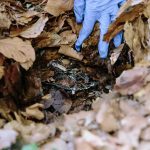Millions of toxic bio-beads wash ashore at camber sands beach following water treatment plant failure

A massive environmental disaster has unfolded along England’s Sussex coast, where millions of plastic bio-beads have contaminated Camber Sands beach following a mechanical failure at a Southern Water treatment facility. The local MP has described the incident as an “environmental catastrophe,” with toxic plastic pellets now spreading across the coastline and posing severe risks to marine wildlife.
Bio-beads are small plastic pellets used in wastewater treatment plants to help break down organic matter through biological processes. While they serve an important function in water purification, these pellets become dangerous pollutants when released into the environment. The beads attract algae growth and emit odors that mimic food sources, making them irresistible to birds, fish, dolphins, and other marine animals. When consumed, these toxic pellets can cause internal injuries, blockages, and potentially fatal poisoning in wildlife.
Southern Water has acknowledged responsibility for the spill, which occurred when equipment malfunctioned at one of their treatment plants, allowing millions of bio-beads to escape into local waterways before washing up on the popular beach. The incident highlights the vulnerability of coastal ecosystems to industrial accidents and raises serious questions about safety protocols at water treatment facilities.
The contamination is reportedly continuing to spread along the Sussex coast, creating an ongoing environmental emergency that could impact marine life for months or even years. Cleanup efforts are now underway, but the small size and widespread distribution of the beads make complete removal extremely challenging, leaving conservationists concerned about long-term ecological damage to this important coastal habitat.
This article was written by the EnviroLink Editors as a summary of an article from: The Guardian







